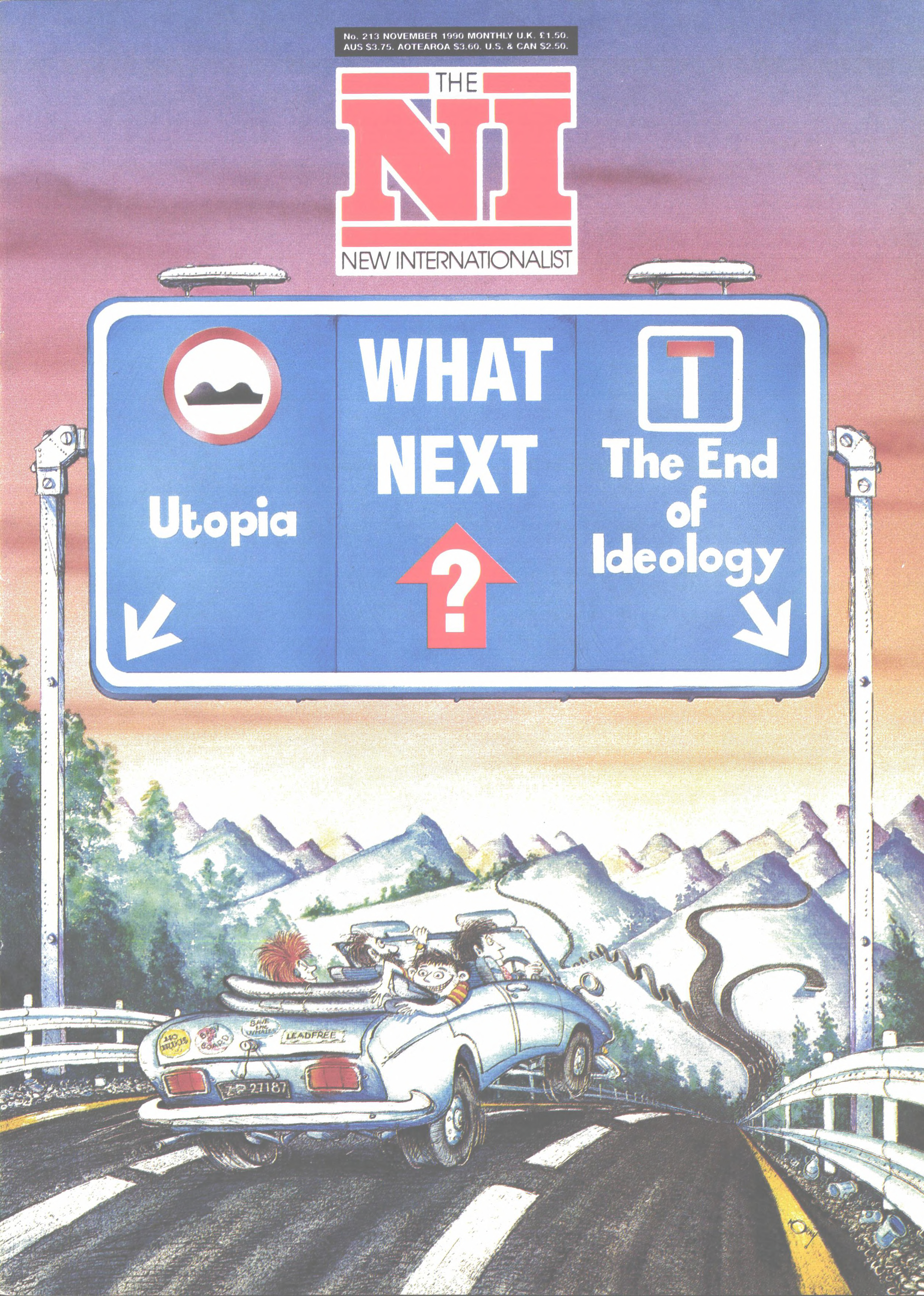new internationalist
issue 213 - November 1990

Jamaica

 To the British, Jamaica was the 'key to the Indies' when they captured it from the Spanish in 1655. Three centuries of colonialism were then imposed on the peoples seized from Africa to work the plantations. Yet the Jamaicans emerged as the most culturally dynamic of all Caribbean peoples. In Kingston, as in the tourist strips of Montego Bay and Ocho Rios, the thump of reggae is everywhere.
To the British, Jamaica was the 'key to the Indies' when they captured it from the Spanish in 1655. Three centuries of colonialism were then imposed on the peoples seized from Africa to work the plantations. Yet the Jamaicans emerged as the most culturally dynamic of all Caribbean peoples. In Kingston, as in the tourist strips of Montego Bay and Ocho Rios, the thump of reggae is everywhere.
Reggae is to Jamaica as calypso is to Trinidad. But whereas calypso now only rarely contains a political message reggae almost always does. For it was born out of a long history of protest. First there were brave and tragic slave revolts, recalled in folklore. Then there was the message of Marcus Garvey, whose writings and activities laid the foundations of what became Black Power.
Advert
Rastafarianism, or the building of a spiritual sense of Africa in oneself, was born in the horrors of the West Kingston slums. Deliverance is its message. 'There can be no liberation without revolution, sang Bob Marley. But he died young and other reggae singers such as Peter Tosh have been gunned down, a reminder of the violence just below the surface.
Social divisions are stark in Jamaica. Lifestyles copied from Miami and Fifth Avenue are enjoyed in closely guarded compounds well away from the misery of the slums. It seems that only music and Red Stripe beer unites Jamaican society.
Singers and poets alike have much to denounce. After over eight years of rule by the pro-US Jamaica Labour Party, a period marked by great hardship as the economy was forcibly 'restructured', the 1989 election returned Michael Manley's People's National Party. Popular expectations that 'Joshua' would lead Jamaicans towards a better future were impossibly high, especially after the devastation caused by Hurricane Gilbert in September 1988.
Manley stood for social justice despite the failure of his earlier administration in the 1970s which was derailed by powerful domestic and US opposition. But by 1989 Jamaica was heavily indebted, and Manley could not afford to antagonize Washington again. The textile industries that had sprung up in Kingston's poorer areas relied on cheap female labour. Their wages are held down as much by non-union agreements insisted upon by the Asian and American employers as by progressive devaluation. Agriculture remains neglected.
There are very few bright spots. The market prospects for bauxite are improving and the industry is being redeveloped. The tourist industry is booming. But little of the earnings trickle downwards: most of the foreign currency earned goes on imports of food and goods demanded by the predominantly white and affluent visitors. As in the days of slavery there seem to be two Jamaicas divided by class and colour, No wonder the island needs its music.
Tony Thorndike
Advert
|
Leader Prime Minister Michael Manley Economy GNP per capita US$1,070 (US $19,840) Currency Jamaican dollar Debt service as percentage of exports 24.8% Exports Bauxite is the main foreign-exchange earner followed by tourism and clothing, the latter produced by 'offshore plants' under special trade arrangements with the US. Agriculture is generally depressed. Advert People 2.4 million, 55% of whom live in towns Health Infant mortality 11 per thousand live births (US 10 per 1,000) Culture Over 80% are black descendants of African slaves. There is a substantial degree of racial mixture and shades of colour. Indians, Syrians, Chinese and Europeans are the main minorities. Religion The Church of England is no longer dominant. It now co-exists with Catholics, Baptists, Seventh Day Adventists and a variety of dynamic charismatic churches. Rastafarianism is particularly popular with young people. Language English and patois. Sources: World Bank Report 1990 and The Americas Review 1990. Last profiled in 1982 |
|
|
|
|
|
|
|
|
|
|
|
|
|
|
|
|
||||||||||
![[image, unknown]](/archive/images/issue/213/_ni_pix_pold_02.gif)
|
|
![[image, unknown]](/archive/images/issue/213/_ni_pix_pold_04.gif)
|
|
![[image, unknown]](/archive/images/issue/213/_ni_pix_pold_06.gif)
|
|
|
|
||||
|
|
|
|
|
||||||||
|
|
![[image, unknown]](/archive/images/issue/213/images_politics.gif) Centrist. Parliamentary democracy. |
![[image, unknown]](/archive/images/issue/213/_ni_pix_pold_14.gif)
|
|
|
![[image, unknown]](/archive/images/issue/213/_ni_pix_pold_17.gif)
|
|
|
||||
|
|
|
|
|
|
|||||||



![[image, unknown]](/archive/images/issue/213/_ni_pix_transparent.gif)







